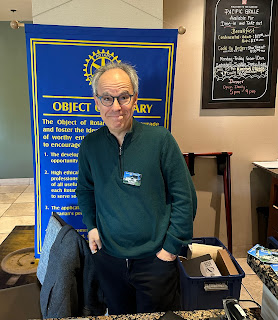During one open school night when I was in high school, my parents met with my math teacher, Ira Goldstein. In retrospect I can see he was a good teacher, despite his monotonous voice and tendency to rock back and forth as he spoke to the class. “Don’t settle for mediocrity,” he would constantly tell the class. I most certainly did not; in fact, I had one of the highest cumulative scores on my tests in the entire class.
So when my parents returned from their meeting with Mr. Goldstein I expected to hear nothing less than glowing accolades and a shower of praise about my intelligence and diligence. Instead, he shared this observation with my parents:
“Mitchell will always do well in math, but he will never invent math.” That is, in his opinion, I would never develop new mathematical theories or concepts.
It took me quite a few years to understand the underlying meaning of Mr. Goldstein’s statement, once I got over the initial shock of hearing it. I see now how correct he was, and that’s a source of great comfort rather than irritation.
Let me explain. I always did do well in math, specifically in those classes I completed after Mr. Goldstein’s class. I worked hard, as I did in all my classes. But math did not come as easily to me as history, English, or countless other subjects. I often struggled. I agonized. I felt a lot of stress. Yet I persisted. I never quit. And I got A grades across the board, save for a B+ in calculus during my freshman year of college (which I had to REALLY work for).
But I never loved math. I tolerated it. I couldn’t fathom what to do with it besides balance my checkbook. As soon as I didn’t have to take math in high school, I didn’t (to the dismay of my high school guidance counselor). And I haven’t taken another math class since my freshman year of college.
Given this experience, I knew I could “do” math, and do it well, if I needed to. I could make myself do it if I had to. That was my limit. The subject served no higher purpose in my life. I didn’t feel motivated in any way to explore its intricacies and possibilities. In this sense, Mr. Goldstein was right.
I was reminded of this realization many years later when I had to complete a statistics course as part of my doctoral program in education. True to form, I worked hard and did well. I had to work hard. It was a grind. I was relieved when the class ended. Fortunately the instructor was skilled in teaching statistics to people like me (who feared it and even hated it). He shared a passion for the subject that I could admire but never aspire to emulate. He once described a certain statistical calculation as “intuitive and elegant.” Statistics would never be intuitive to me, and I never could fathom what elegant meant in this context.
So I would never invent statistics, just like I never invented math. And that’s okay. I understand why. I don’t love these subjects, and only occasionally bump into them in my life.
The minor inconveniences such avoidance of statistics and math might have caused is outweighed by my ability to redirect my energies to other domains where I can be creative (and may even someday invent things)—like in the fields of personal productivity and leadership development, for example. Thank you, Mr. Goldstein!
